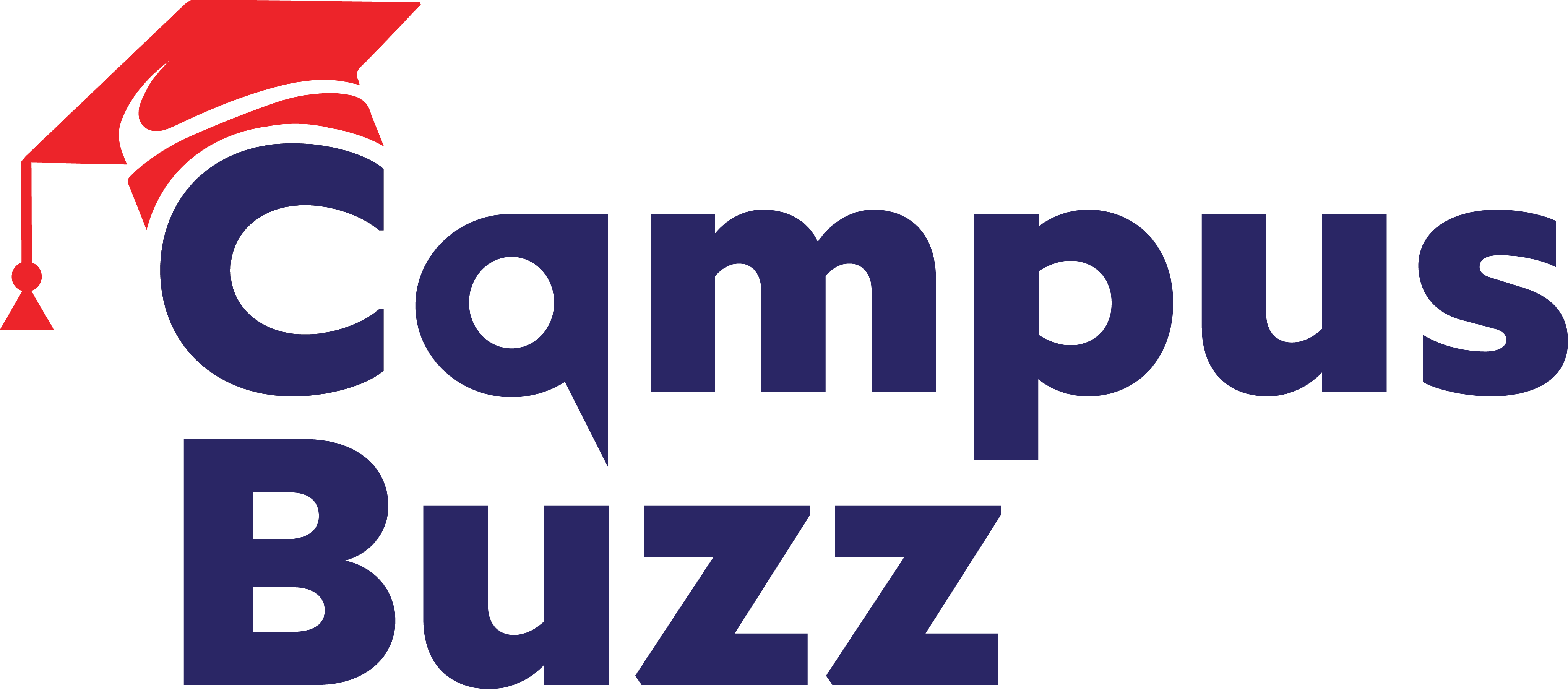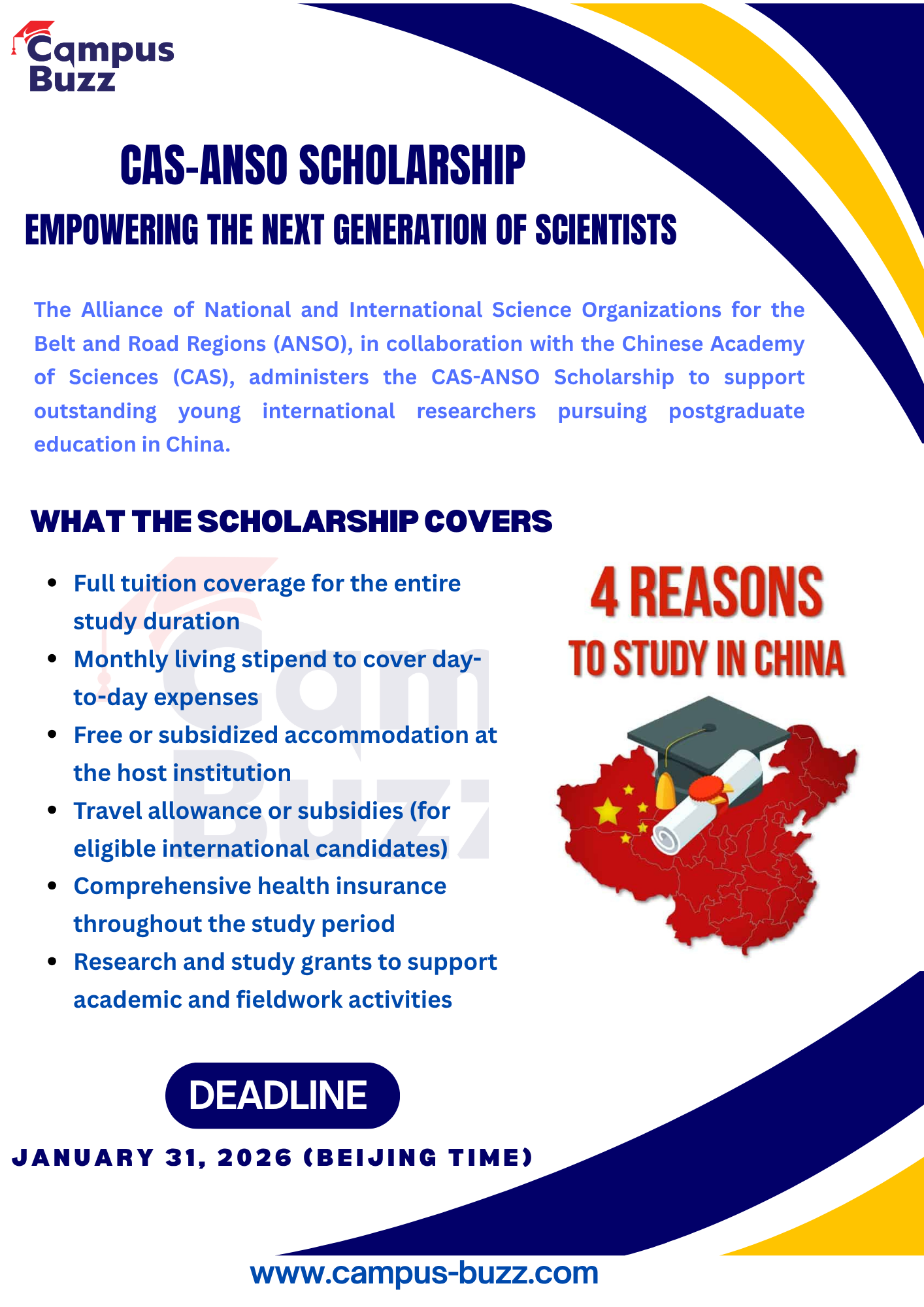The Alliance of National and International Science Organizations for the Belt and Road Regions (ANSO), in collaboration with the Chinese Academy of Sciences (CAS), administers the CAS-ANSO Scholarship to support outstanding young international researchers pursuing postgraduate education in China.
About the Scholarship
Launched in 2019, the CAS-ANSO Scholarship aims to cultivate global scientific talent by offering fully funded Master’s and PhD opportunities at top Chinese universities and research institutions — primarily at the University of Science and Technology of China (USTC), the University of Chinese Academy of Sciences (UCAS), and other institutes under CAS.
This prestigious program is designed to build scientific capacity and foster international collaboration by equipping scholars with advanced research experience, technical expertise, and access to world-class laboratories.
Inclusive Opportunities
In recent years, a specialized category known as the ANSO-CAS-TWAS/UNESCO PhD Scholarship has been introduced to provide additional support for scholars engaged in climate and sustainability research. This initiative also prioritizes applicants from Least Developed Countries (LDCs) and women researchers, reflecting ANSO’s commitment to inclusivity and equitable global development.
What the Scholarship Covers
The CAS-ANSO Scholarship (Degree Program) provides comprehensive financial and academic support to its awardees. The benefits typically include:
-
Full tuition coverage for the entire study duration
-
Monthly living stipend to cover day-to-day expenses
-
Free or subsidized accommodation at the host institution
-
Travel allowance or subsidies (for eligible international candidates)
-
Comprehensive health insurance throughout the study period
-
Research and study grants to support academic and fieldwork activities
For candidates under the ANSO-CAS-TWAS/UNESCO PhD sub-category, the Chinese Academy of Sciences (CAS) funds core components such as tuition, stipend, and accommodation, while TWAS/UNESCO may provide additional allowances or travel support depending on their funding policies.
Eligibility Criteria
To be eligible for the CAS-ANSO Scholarship, applicants must meet the following requirements:
-
Non-Chinese Citizenship: Applicants must not hold Chinese nationality.
-
Language Proficiency: Proficiency in English or Chinese is mandatory.
-
Age Requirements:
-
For Master’s programs – applicants must be born on or after January 1, 1996.
-
For PhD programs – applicants must be born on or after January 1, 1991.
-
-
Academic Qualification: Must satisfy the admission requirements for international students at USTC, UCAS, or other CAS-affiliated institutes.
-
Full-time Commitment: Recipients cannot hold any other academic or employment assignments during the scholarship period.
-
Enrollment Restriction: Candidates currently enrolled in a Master’s or Doctoral program at any Chinese university are not eligible to apply for the same level of the CAS-ANSO Scholarship.
Application Timeline & Procedure
Key Dates
-
Applications Open: October 15, 2025
-
Application Deadline (for applicants and referees): January 31, 2026 (Beijing Time)
How to Apply
-
Access the graduate admission system of either the University of Science and Technology of China (USTC) or the University of Chinese Academy of Sciences (UCAS), and select the “CAS-ANSO Scholarship” option.
-
Applicants interested in the TWAS/UNESCO PhD track must select the relevant option during the application process.
-
Submit all required documents — including academic transcripts, research proposals, recommendation letters, and any other specified materials — before the deadline.
Why the CAS-ANSO Scholarship Matters
The CAS-ANSO Scholarship plays a vital role in advancing global scientific collaboration and inclusive education.
-
It enhances global scientific capacity, particularly empowering researchers from the Global South.
-
It promotes international research partnerships between emerging scholars and China’s top research institutions.
-
The TWAS/UNESCO PhD sub-category emphasizes climate research, supports scholars from Least Developed Countries (LDCs), and promotes gender equality in science.
-
Awardees gain access to world-class infrastructure, extensive research networks, generous scholarship support, and valuable mentorship opportunities.



